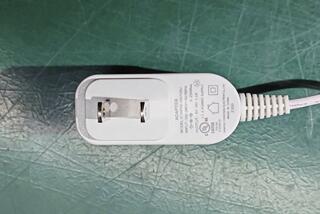FDA Recalls Artificial Hips Prone to Cracking
- Share via
WASHINGTON — Hundreds of artificial hips are being recalled because one piece--the joint ball--is made of a ceramic that could crack.
It’s the second major recall of artificial hips in the last year.
The Food and Drug Administration announced the recall Friday, warning surgeons not to use the affected implants. Patients were instructed to call their doctors if they experience symptoms suggesting the joint has cracked.
The FDA has at least 14 reports so far of patients who have experienced failures of the implanted hips.
But people shouldn’t panic: Not all the recalled hips will break, and there’s no need for more surgery unless one does. But there’s also no way to predict which of the devices will fracture.
Patients should “be aware this increased risk exists,” FDA medical officer Dr. Dan Schultz said. “If they have any symptoms whatsoever, they need to get in to see their physician as quickly as possible. Don’t assume . . . it’s something that is just going to go away.”
Symptoms include hip pain, a sensation of grinding, and limitation of motion, Schultz said. The fracture sometimes is preceded by a popping sound.
The at-risk hips tend to break between 19 and 28 months after being implanted, FDA compliance officer Carol Fedorchak said.
French company St. Gobain Desmarquest recalled nine batches of its ceramic femoral heads--the ball portion of the hip implant--that were manufactured since early 1998.
The worst batch has an 8% breakage rate, well above the 0.01% breakage rate expected for such parts, Fedorchak said. The other eight batches had a far lower breakage rate, but were being recalled as a precaution.
Apparently, a change in the heating process during manufacture left the ceramic part more fragile.
Eight U.S. makers of artificial hips use the French maker’s ceramic part, and they are pulling affected implants from surgeons’ offices. The eight include: Apex Surgical of Lakeville, Mass.; Encore Orthopedics Inc. of Austin, Texas; Osteoimplant Technology Inc. of Hunt Valley, Md.; Smith & Newphew of Memphis, Tenn.; Stryker Howmedica Osteonics of Allendale, N.J.; and Biomet Inc., DePuy Orthopaedics Inc. and Zimmer Inc., all of Warsaw, Ind.
Patients likely will not know if they have a hip made with a ceramic femoral head; the joint part also can be made of metal. FDA officials said they do not require doctors to keep a registry of exactly which artificial joints they implant in patients, but that patients could ask their surgeons.
It’s also unclear just how many artificial hips are affected. The French company recalled roughly 7,200 femoral heads, but not all were sold to U.S. hip makers.
The hip recall is the second in less than a year: Sulzer Medica recalled thousands of its artificial hips in December, after a manufacturing change left an oily residue on some that prevented the new joint from bonding with patients’ bones. A court now is considering a proposed $700-million class-action settlement for recipients of those joints.






